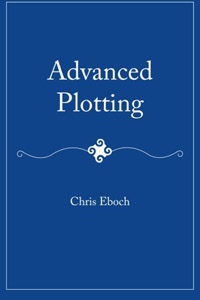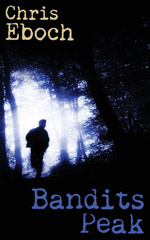by Chris Eboch
 Many writers treat theme as something that just happens, so they don’t try to control it. But this can lead to a story with a confusing theme, or even one that accidentally contradicts the author’s beliefs.
Many writers treat theme as something that just happens, so they don’t try to control it. But this can lead to a story with a confusing theme, or even one that accidentally contradicts the author’s beliefs.
You don’t need to know your theme right away. Sometimes, you may discover your message as you write the story. Or you may start with one idea in mind, and change it as you go. Writing the story may help you explore new aspects of an idea, uncovering complexities and contradictions. This can result in a deeper, more meaningful story, so let that process unfold. But you should definitely know your theme before you finish your final draft, and edit to make sure your story best supports your theme.
When trying to identify your theme, start big and then narrow your focus. Can you define your theme in one word? Is it about love, hope, courage, sacrifice? Once you’ve identified that word, try to state your theme as a single, clear sentence. What do you want to say about that word? For example, if your novel is about sacrifice, is your character making sacrifices for her own future, for a loved one, for her country, for an ideal? What does she have to sacrifice? Narrowing in on the specifics can help you pinpoint your theme.
Then work backward. Does your novel truly support your message? Maybe you’ve decided that your theme is “The greater good is more important than the individual’s desire.” In that case, your main character should be giving up a desire in order to help a larger group. But perhaps you liked your character so much that you ended with her helping the group and getting what she wanted as well. That weakens your message, and suggests a different theme, “Good will be rewarded.” You might want to reconsider your ending.
Find people to read your story and ask what message they take away. Make sure their response is in line with your ideals. Don’t expect all your readers to pick out your theme exactly, however. If they do, you’re probably not being subtle enough. Just make sure they find a valuable message. In my Mayan historical adventure, The Well of Sacrifice, I knew my main theme: make your own decisions and stand on your own. One young reader wrote me and said, “The book…helped me think to never give up, even in the worst of times, just like what happened to Eveningstar.” I’m happy to inspire a reader to “never give up,” even if that wasn’t my main theme. And perhaps readers will be subtly influenced by my primary message, even if they don’t recognize it while reading.
Too Many Messages?
For younger readers and short stories, you need to keep the theme simple. The longer the story or novel, and the older the reader, the more complex and subtle you can be. At first a book may appear to be a humorous romance, but as the story unfolds, it may reveal a theme about honesty in relationships. The theme may only be clear from the final twist in the story. The theme can be revealed through what the main character learns, how she changes, what she gains or loses.
As part of your revisions (or in the planning stage, if you are really organized), work on your character in order to set up your theme. Use her virtues and vices. How will her strengths help her? What weaknesses does she have to overcome? Make sure these tie into the theme. If your character must learn about honesty, make sure that it will be possible but difficult for her. Maybe she craves intimacy, but is afraid no one will like her if she shows her true self.
For longer works, think about how you can use other characters or subplots to support or expand on your theme. Maybe your main character learns to be honest in her relationships, and so develops a loving connection with her boyfriend. In contrast, her friend might keep lying in order to make a good impression, and get dumped, or wind up with a shallow, dissatisfying relationship. A subplot about the main character’s relationship with her parents could explore the theme in yet another way.
Multiple themes can give a novel extra depth and power. However, don’t let your story get cluttered with too many themes, especially wildly different ones. If you try to share everything you believe about life in one story, it will feel cluttered and confusing. Focus on one primary theme, and save the others for different works.
In your theme, you can find the heart of your story. It’s your chance to share what you believe about the world, so take the time to identify and clarify your theme, and make sure your story supports it.
 Chris Eboch writes fiction and nonfiction for all ages. In Bandits Peak, a teenage boy meets strangers hiding on the mountains and gets drawn into their crimes, until he risks his life to expose them. The Eyes of Pharaoh is an action-packed mystery set in ancient Egypt. The Genie’s Gift is an Arabian Nights-inspired fantasy adventure. In The Well of Sacrifice, a Mayan girl in ninth-century Guatemala rebels against the High Priest who sacrifices anyone challenging his power. Her writing craft books include You Can Write for Children: How to Write Great Stories, Articles, and Books for Kids and Teenagers and Advanced Plotting.
Chris Eboch writes fiction and nonfiction for all ages. In Bandits Peak, a teenage boy meets strangers hiding on the mountains and gets drawn into their crimes, until he risks his life to expose them. The Eyes of Pharaoh is an action-packed mystery set in ancient Egypt. The Genie’s Gift is an Arabian Nights-inspired fantasy adventure. In The Well of Sacrifice, a Mayan girl in ninth-century Guatemala rebels against the High Priest who sacrifices anyone challenging his power. Her writing craft books include You Can Write for Children: How to Write Great Stories, Articles, and Books for Kids and Teenagers and Advanced Plotting.
Learn more at www.chriseboch.com or her Amazon page, or check out her writing tips at her Write Like a Pro! blog. Sign up for her Workshop newsletter for classes and critique offers.
Chris also writes novels of suspense and romance for adults under the name Kris Bock; read excerpts at www.krisbock.com.
This article was originally published in the November 2011 issue of SouthWest Sage and is reprinted here by permission of the author.


Leave a Reply